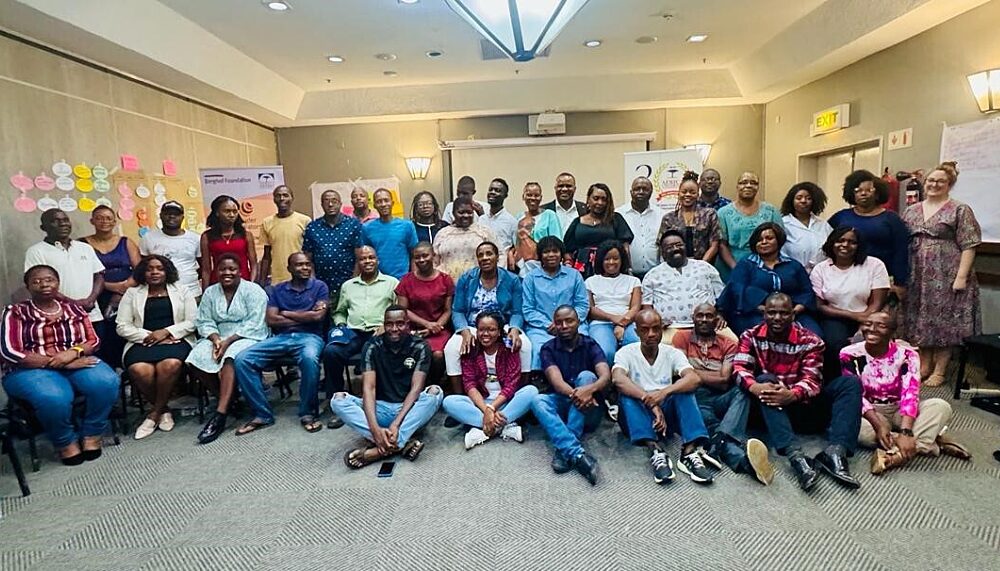FEATURE | 24 May 2024
Tackling environmental degradation together
Insider mediators work on environmental peacebuilding in Zimbabwe

Local mediators analysed the relationship between climate change and conflicts in their regions at a workshop that we co-hosted with Africa University in Harare.
Zimbabwe was once considered a thriving nation in Africa, but is now one of the poorest countries in the world facing deep-rooted political, social and economic challenges. Climate change has further contributed to the deterioration of the country: Warmer temperatures and less rain have led to frequent droughts. In addition, excessive mining activity has caused serious land degradation and deforestation in large parts of the country, which has led to people losing their livestock or even their homes. In some cities, there also have been disputes over waste management that have led to trash piling up for up to one month causing air and water pollution and the spread of diseases such as Cholera.
Together with Africa University and funded by the European Union, we hosted a workshop in Harare on how environmental peacebuilding can help combat environmental degradation and its effect on local conflicts. 41 members of our insider mediator network, comprising of 46 Zimbabweans from across the country, took part in the workshop. We asked them what they have taken away from the meeting and how it has impacted their work as local mediators. Meet members of our network and watch their responses:
The network members’ main takeaway from the workshop was that there is a strong nexus between climate change, environmental degradation, and conflict in Zimbabwe. They realised that they need to consider climate and environmental questions in most of the conflicts they work on, as they are often exacerbate or cause conflicts.
They also learned to detect different entry points for their interventions: Sometimes environmental degradation or problems caused by the effects of the climate crisis can be turned into an opportunity for communities to come together, “unite against a common threat” and work together to find solutions. By tackling these threats together, groups can build an understanding of one another and hopefully even a more trusted relationship, which can then help to resolve disputes between the two groups later in the mediation process.
Find out more about our work with insider mediators in Zimbabwe and how an insider mediator secured water supply for local farmers.
Media contact
You can reach the press team at:
+49 (0) 177 7052758
email hidden; JavaScript is required


